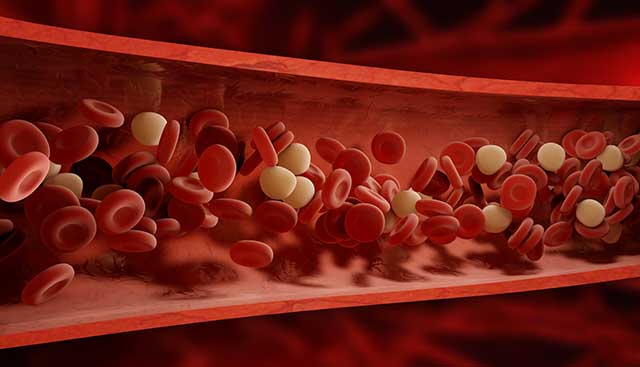
Malignant Hematology ASCO Highlights
Moffitt’s Malignant Hematology physicians and scientists were proud to share and present their research findings at American Society of Clinical Oncology (ASCO 2022)
Dr. Frederick Locke presented that In clinical trials of CAR T-cell therapies and real-world studies published to date, there is a paucity of data on outcomes by race and ethnicity. We examined outcomes by race and ethnicity among LBCL pts who received axi-cel in the real-world setting.
Dr. David Sallman explains that Magrolimab is a monoclonal antibody that blocks CD47, a “don’t eat me” signal overexpressed on cancer cells. CD47 blockade by magrolimab induces macrophage-mediated phagocytosis of tumor cells and is synergistic with azacitidine (AZA) via upregulation of “eat me” signals. Here we report final Phase 1b data in patients (pts) with untreated HR-MDS (NCT03248479).
Dr. David Sallman presented that Mutations in isocitrate dehydrogenase 1 (IDH1) occur in ̃3% of patients (pts) with MDS and are associated with increased transformation to acute myeloid leukemia (AML). Ivosidenib (IVO), an oral, potent, targeted inhibitor of the mutant IDH1 (mIDH1) enzyme, is FDA approved for mIDH1 R/R AML and mIDH1 newly diagnosed AML in pts ≥75 years old or with comorbidities precluding the use of intensive induction chemotherapy. In the first-in-human study of IVO in pts with mIDH1 advanced hematologic malignancies (NCT02074839), 12 pts with R/R MDS received IVO 500 mg once daily (QD). Based on encouraging safety and efficacy findings, including an investigator-assessed overall response rate (ORR) of 75%, with median response duration of 21.4 months, the FDA granted Breakthrough Therapy designation to IVO in mIDH1 R/R MDS and the study was amended to enroll additional pts.
Hyperferritinemia as predictive biomarker of poor clinical outcomes in CMML
Dr. Luis Aguirre discusses how Evidence supports a close interplay between systemic inflammation and risk of myeloid malignancies, notably for those with history of infection or autoimmune disease. CMML has been associated with inflammation and end-organ damage related to CKD and CVD. Analysis of gene signatures from CMML-derived monocytes has shown them to be highly proinflammatory. High ferritin may serve as a practical biomarker of disease activity to help identify pts at higher risk of poor outcomes.
Dr. Hayder Saeed presents that Phosphoinositide 3-kinase (PI3K) inhibitors have shown promising activity in lymphoid malignancies such as mature T cell lymphoma, diffuse large B cell lymphoma, and mantle cell lymphoma. Duvelisib’s PI3K-δ and PI3K-γ activity in T cell lymphoma is promising as a single agent (Horwitz, Koch et al. 2018). While the safety profile can generally be managed, certain autoimmune adverse events may limit its adaptation in clinical practice. Azacitidine, a pyrimidine nucleoside analog of cytidine, is active in T cell lymphoma (Saillard, Guermouche et al. 2017) as well as in DLBCL (Martin, Bartlett et al. 2018). Hypomethylators could enhance the activity of PI3K inhibitors through increasing PTEN expression (Spangle, Roberts et al. 2017), and upregulation of tumor suppressor genes (Zuo, Liu et al. 2011). Duvelisib’s immune mediated adverse events may be related to shifts in T cell differentiation towards Th17 phenotype and decreases in T reg differentiation that found to be more pronounced in patients with higher immune related toxicity (Gadi, Kasar et al. 2019). Studies have shown that T regs can be induced from Cd4+CD25- T cells using DNA methyltransferase inhibition with azacitidine (Fagone, Mazzon et al. 2018). Thus, the intermittent administration of azacytidine can potentially restore the balance by increasing T regs to decrease the autoimmune toxicity while maintaining Th17 phenotype that enhances tumor killing as shown in myelodysplastic syndrome (Jia, Yang et al. 2020).
If you’d like to refer a patient to Moffitt, complete our online form or contact a physician liaison for assistance. As part of our efforts to shorten referral times as much as possible, online referrals are typically responded to within 24 - 48 hours.
